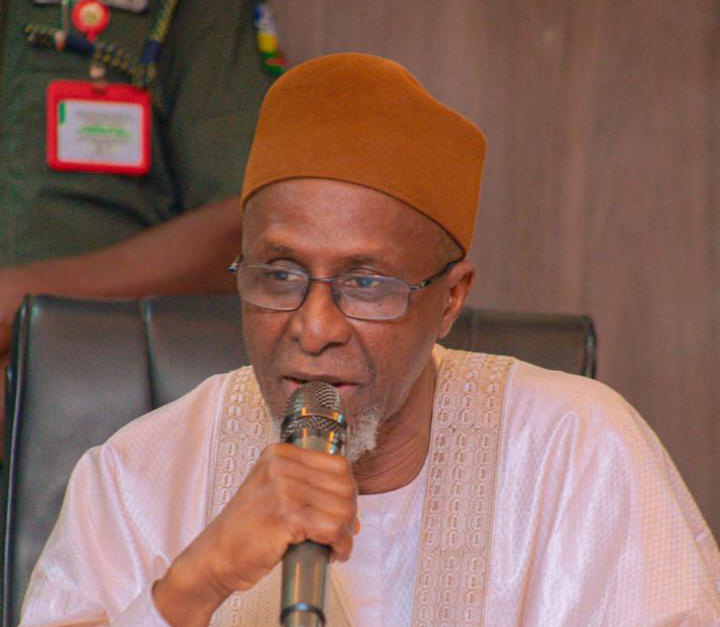By Chuks Oyema-Aziken
Minister of Environment, Balarabe Abbas Lawal has made a call for building resilience in addressing loss and damage from climate change.
The Minister made the call at the Stakeholders Engagement Workshop on Addressing Loss and Damage from Climate Change in Abuja on Friday.
The workshop was organised the Federal Ministry of Environment with the support of the European Union.
The Minister represented by the Director, Climate Change, Federal Ministry of Environment, Dr. Iniobong Abiola-Awe called for investments in adaptive strategies that empower communities to withstand and recover from climate shocks.
He said “This includes promoting sustainable agricultural practices, enhancing infrastructure and protecting natural ecosystems that serve as buffers against climate impacts.
“To effectively address loss and damages, we need robust policy frameworks that prioritize climate action at all levels of governance. Additionally, we must explore innovative financial mechanisms that can mobilize resources for climate adaptation and recovery efforts such as Nigerian Sovereign Green Bond.
Permanent Secretary of the Ministry, Adam Mahmud Kambari in his keynote address said impacts of Climate Change are projected to become more severe under future climate change scenarios.
The address also delivered on his behalf by Dr. Abiola-Awe said that the need for adaptation is very important to adjust our systems and operations to these effects without affecting daily activities.
In her paper presentation titled “Introduction to Loss and Damage (Warsaw International Mechanism for on Loss and Damage), Dr. Salamatu Ekpo of the Faculty of Environmental Studies, Nasarawa State University, identified some challenges in addressing loss and damage from climate change.
“One of the primary obstacles is the availability of adequate financial resources to implement loss and damage programs. Many vulnerable countries struggle to access climate finance, which hampers their ability to develop and execute effective adaptation and mitigation strategies,” she said.
“Climate change results in gradual, slow-onset impacts such as desertification, sea-level rise, and biodiversity loss. These changes can be challenging to address due to their long-term nature and the difficulty in measuring their immediate effects, making it harder to mobilize support and resources.
“Effectively incorporating loss and damage considerations into national development and planning frameworks is complex. There is often a lack of coordination among different government sectors and insufficient data to inform decision-making processes.
She said that despite these challenges, there are significant opportunities that can arise from addressing loss and damage.
“By focusing on loss and damage initiatives, countries can build stronger resilience to climate impacts, resulting in healthier ecosystems and more robust communities capable of withstanding future climate-related shocks.
“Integrating loss and damage strategies into national and local planning can support broader sustainable development goals. This integration encourages practices that are environmentally sound and economically viable, creating long-term benefits for communities.
“Addressing loss and damage can bolster existing climate change adaptation and mitigation strategies. By understanding and responding to the complexities of climate impacts, governments and organizations can foster a more comprehensive approach to climate action that supports overall climate resilience and sustainability,” she added.



